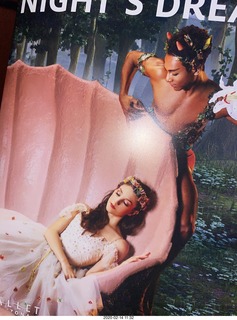
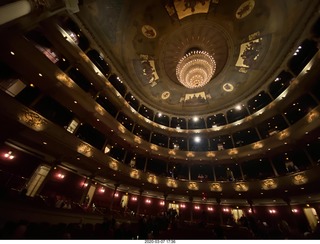
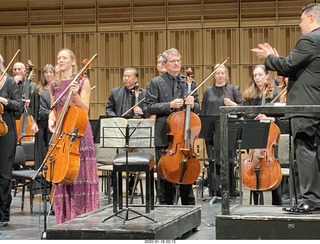
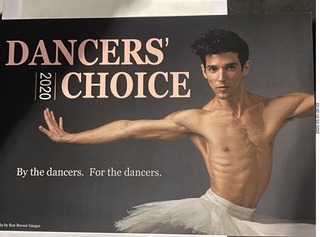
When we think of patronage in the arts, we tend to think think of Viennese nobility funding the great composers like Bach, Haydn, Mozart, and Beethoven or, more recently, Nadezhda von Meck paying Tchaikovsky 6000 rubles per year. Somehow there has been a transition from weathy patrons to institutions funding the arts, public institutions or publicly traded institutions. I'd like to put in my pitch for personal, private patronage in our day and age. I have a strong interest in the health of the performing arts as I have twenty-nine concerts in the ninety-one days of 2022 autumn.

|

|

|

|
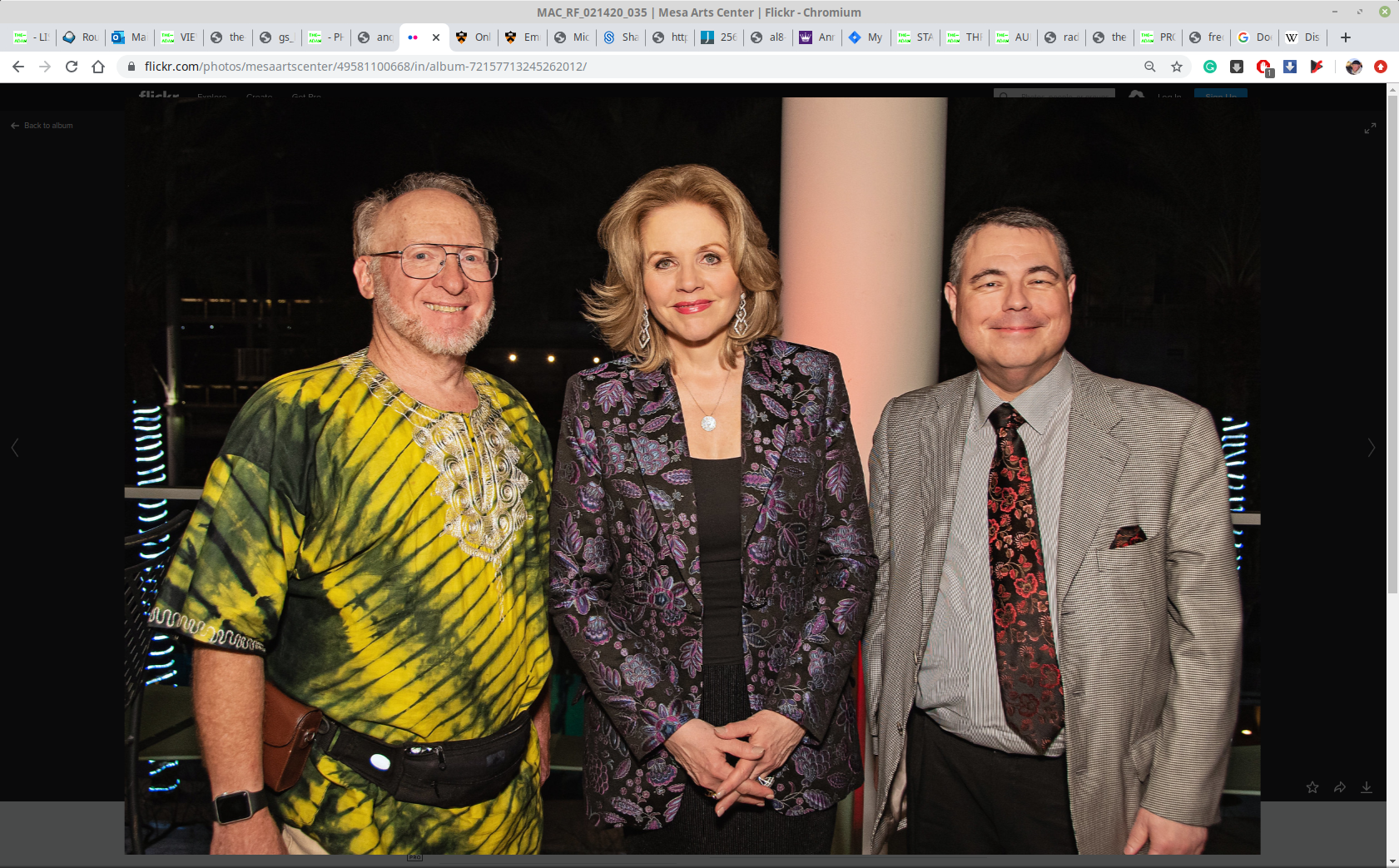
|
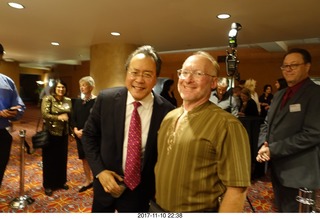
|
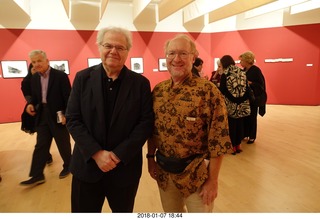
|
I defend patronage on two fronts. First, let me explain why I believe we can't realistically rely on ticket sales alone to find arts organizations. Part of the joy of arts organizations is having a large community enjoying them. While central-European nobles and American tycoons may have enjoyed having art on their walls and concerts in their atria to enjoy alone or with a few friends, I know I like a large, enthusiastic audience when I enjoy art, music, and dance. (Not too large as I want to be able to get good seats for myself and not too enthusiastic when they clap and cheer between movements.) Especially in music and dance the interaction between performer and audience is an active source of energy in the performance.
Short of some insane pricing-tier system like the airlines had where people staying over a Saturday night or people buying tickets far in advance get discounts a ticket price that fills a concert hall isn't going to bring in enough revenue to pay for the art we like. Charging a lot more money for the presigious box seats or the seats up front is one way to extract some extra revenue.
Ballet and opera are especially vulnerable if they try to rely on ticket revenue to survive. A symphony orchestra can produce seventy programs in a year while a ballet or opera company might be able to produce seven shows. Those productions involve performers, sets, theatrical crews, and a symphony orchestra in the pit. What would a ticket have to cost to pay for all that and who would pay that price? Patronage ensures these institutions can survive and prosper.
Given the need for generous people to support the arts, where should that money come from? Some of my more progressive friends suggest people with guns take tax money from people who don't go to the opera and who are generally less well off than those in opera audiences to pay for the opera. Besides that obvious evil, government support always eventually comes with political strings attached and those strings eventually become tight enough to choke the breath of life from these arts organizations. One of my seven arts groups just left my portfolio because they supported a hateful and violent political organization, presumably caving to pressure from those paying the bills.
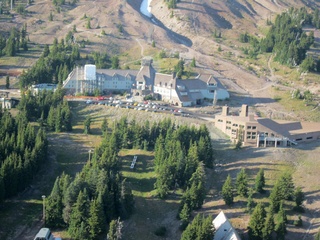 I figure it's cheaper and easier
to let people like me pay.
Put my name in the program
and put out cheese and krumpets
and wine and cola at intermission
and invite me to join other donors
for the occasional
Fish and Goose Soiree,
usually more cheese and krumpets
and wine and cola,
which is just fine with me.
The people sharing my tables at these things
are almost always cultured and knowledgeable,
well versed in many things including
music, dance, and art.
Sometimes I find a flower and a thank-you note
on my seat at the performance.
I figure it's cheaper and easier
to let people like me pay.
Put my name in the program
and put out cheese and krumpets
and wine and cola at intermission
and invite me to join other donors
for the occasional
Fish and Goose Soiree,
usually more cheese and krumpets
and wine and cola,
which is just fine with me.
The people sharing my tables at these things
are almost always cultured and knowledgeable,
well versed in many things including
music, dance, and art.
Sometimes I find a flower and a thank-you note
on my seat at the performance.
Would I give money without these perks? Maybe, but it's more fun to be part of a scene than to donate more anonymously.
I remember my tenure running a chamber-music series in Rumson, New Jersey, four concerts a year with an audience around one hundred. We applied for a grant each year from the taxpayer-funded New Jersey Endowment for the Arts (or some similar name) and I filled out a lengthy form outlining our history and our mission and what we were doing that was new and innovative. Since the parent organization usually gave the money pro-rated on the amount from years past, I probably could have written, "We're giving four chamber-music concerts this year like we have done since 1959," and we would have gotten the same money, but, in case somebody would read what I wrote, I put lengthy justifications about what we were going to do that was new and innovative in promoting and presenting. Based on that pressure I brought a piano back to our stage and my predecessor waggled her finger at me and said, "You'll be sorry." When the hired piano movers dropped a seven-foot Steinway grand piano down the stairs, I realized she was right. ("We weren't expecting to move a piano of this magnitude." How many magnitudes of seven-foot concert grand pianos are there?) I'm not suggesting the requirements of the grant were oppressive or onerous, just that they presented arts groups with pressure to conform to their standards instead of their own or those of their audiences.
At the end of the day, I'm proud to be a patron of the arts and I believe in patronage as an important and vital way of funding these wonderful instutions. Private donations supporting the arts aren't just a nice-to-have, they are our fundamental responsibility as patrons.
I'm also proud of the arts organizations I support. Driven by some muses inside them they work hard to share their grace and beauty. This is hard in the best of times and the organizations I support have managed to return apparently unscathed through the pandemic panic.
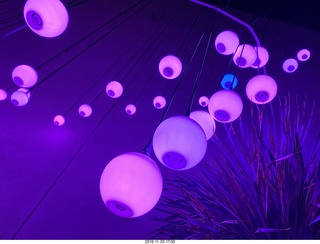 I've been an increasingly-active member of the
Scottsdale Center for the Performing Arts
for fifteen years.
They have managed to present all types of music and dance
along with more-dramatic shows of various sorts year after year.
(I had a difficult moment a few years back
when they asked me to speak at the city-council meeting
where their tax-supported funding was being decided.
While I don't believe in using tax revenue
to support the arts,
I didn't want them to lose that funding
because of any negative perception of them.
In other words,
if the decision was going to be based on their value
to the community in Scottsdale,
then I wanted them presented in the most favorable light,
I chose my words carefully,
and they got their money.)
I've been an increasingly-active member of the
Scottsdale Center for the Performing Arts
for fifteen years.
They have managed to present all types of music and dance
along with more-dramatic shows of various sorts year after year.
(I had a difficult moment a few years back
when they asked me to speak at the city-council meeting
where their tax-supported funding was being decided.
While I don't believe in using tax revenue
to support the arts,
I didn't want them to lose that funding
because of any negative perception of them.
In other words,
if the decision was going to be based on their value
to the community in Scottsdale,
then I wanted them presented in the most favorable light,
I chose my words carefully,
and they got their money.)
My enthusiasm for Ballet Arizona has grown steadily as well over the past decade. I don't keep tickets to the Phoenix sports teams. Instead my athetic superstars are these dancers who fly through the air with apparent ease and have to do it in time with the music. Ib Anderson has been the Artistic Director for twenty years and his vision is inspiring. While they have remained faithful to ballet's European roots, they have brought some Latin American music into their programs, appropriate as many of the dancers are from South America. I'm active in their social events and I'm famous for wearing my Degas-ballet shirts.
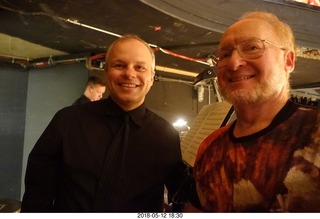
|
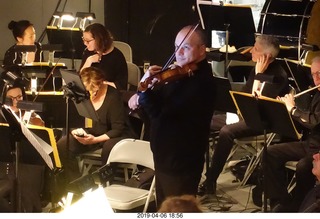
|
The Phoenix Symphony is having their seventy-fifth season, my eighteenth I think. The former concertmaster Steven Moechel and I would chat occasionally at events and he represented the orchestra proudly and well. I've had a conversation or two with Music Director Tito Muñoz and I'm happy with his musical direction. A friend of mine is close to several of the musicians. It's a pleasure to see them in concert again.
The Mesa Arts Center (MAC) was built in 2005, a beautiful, post-modern facility that has been able to attract top talent in classical and modern music and dance. They have theaters big and small so audiences can have both grandness and intimacy. They have been a rapidly-growing part of my concert experience.
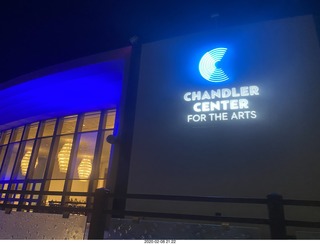 The city created Chandler Center for the Arts (CCA)
in 1989 from what appears to be
an old movie theater.
They even serve popcorn at the shows.
Their acts tend not to be big names
like those at Scottsdale and Mesa,
but they present wonderful, creative acts
and they present those acts well
with a bright, cheerful attitude in their big hall.
The city created Chandler Center for the Arts (CCA)
in 1989 from what appears to be
an old movie theater.
They even serve popcorn at the shows.
Their acts tend not to be big names
like those at Scottsdale and Mesa,
but they present wonderful, creative acts
and they present those acts well
with a bright, cheerful attitude in their big hall.
We have a wonderful classical FM-radio station KBAQ. Unlike most non-commercial radio stations there are no talk shows or political programs, just the music. In addition to their twenty-four-seven classical-music coverage, I like their choice of musical material.
From Arthur C. Clarke's book 2001: A Space Odyssey, "They became farmers in the fields of stars; they sowed, and sometimes they reaped. And sometimes, dispassionately, they had to weed." I was with the Philadelphia Orchestra for thirty-eight years starting in 1982, back when Eugene Ormandy was Music Director, and shared concerts friends who go back as far as when Leopold Stokowski waved his wand at the Academy of Music. I stayed with the orchestra when they invested in the New Era ponzi-pyramid scheme and when they got an Edifice Complex and spent $300 million on a new concert hall when I loved and still prefer the old one. I even stayed with them when they started interjecting self-rightous political overtones into their presentations. Their recent support for a racist, violent, anti-Jewish group that is a part of one of our political parties, shamefully in the name of human rights, is enough beyond my comfort level to end my relationship with them, at least until they reduce their political position. In my opinion the best political position for an arts organization is take no position at all and let their art speak for them.
Where there is death there is often new life and where there are endings there are new beginnings. I have joined Arizona Musicfest. They have been around for thirty years but I only discovered them a couple of years ago and, apparently, so have a lot of other people as they're growing by leaps and bounds. Their programs are a wonderful mix of classical, jazz, popular, and folk. They have their "Festival Orchestra" with top musicians from all over coming together to form an orchestra for one or two weeks a year at Musicfest.
 It's not an arts organization
and this page is titled
"Patronage in the Arts,"
so it's a bit of a stretch,
but beauty isn't limited to art, music, and dance.
Scottsdale is blessed to have a large preserve in the desert
and a network of wonderful trails is maintained
by the
McDowell Sonoran Conservancy.
I've enjoyed their trails for
almost twenty years
(I used to run these trails until
arthritic knees and circulatory problems
limited my endurance exercise to bicycling and hiking.)
I found out recently they do more than
creation and maintenance of hiking trails
as they also have their own scientific studies
and community outreach programs to schools and such.
The folks I've met in and around the Conservancy
have been bright, positive, energetic, joyful people
and their hiking-trail stewards have been helpful
with great suggestions of places to hike and things to see.
I'm proud to be associated with their efforts
and I'm happy to donate my share of their work
on the trails I hike most Sunday mornings.
It's not an arts organization
and this page is titled
"Patronage in the Arts,"
so it's a bit of a stretch,
but beauty isn't limited to art, music, and dance.
Scottsdale is blessed to have a large preserve in the desert
and a network of wonderful trails is maintained
by the
McDowell Sonoran Conservancy.
I've enjoyed their trails for
almost twenty years
(I used to run these trails until
arthritic knees and circulatory problems
limited my endurance exercise to bicycling and hiking.)
I found out recently they do more than
creation and maintenance of hiking trails
as they also have their own scientific studies
and community outreach programs to schools and such.
The folks I've met in and around the Conservancy
have been bright, positive, energetic, joyful people
and their hiking-trail stewards have been helpful
with great suggestions of places to hike and things to see.
I'm proud to be associated with their efforts
and I'm happy to donate my share of their work
on the trails I hike most Sunday mornings.
There are charitable, educational, and political organizations,
not community or artistic,
that I support vigorously as well
as their missions are important to me.
The McDowell Sonoran Conservancy
is close enough to an arts organization
that I include it in this piece,
charity, education, and politics are not,
so I'll stop here.
|
8:27:37 Mountain Standard Time (MST). 934 visits to this web page. |